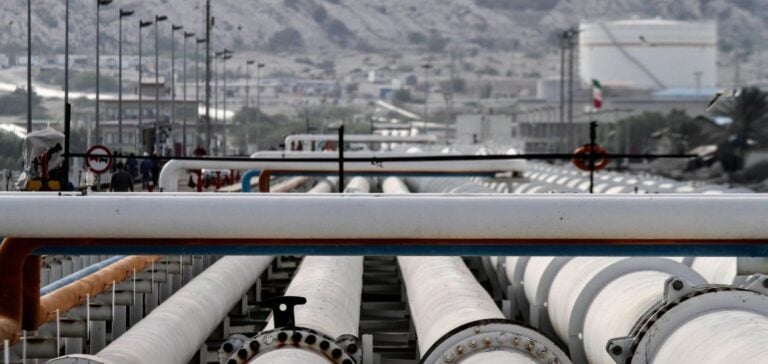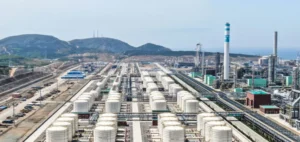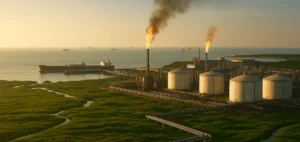Iran’s energy situation has reached a critical level, according to President Masoud Pezeshkian. In a recent televised interview, he described a declining sector marked by imbalances between the production and consumption of oil, gas, electricity, and water. The drop in oil production, coupled with a steady rise in domestic demand, exacerbates an already deep crisis.
Sanctions imposed by the United States since 2018 have significantly reduced Iran’s ability to fund its oil projects. Crude oil production has fallen by 426,000 barrels per day (b/d), with the risk of dropping to 2.75 million b/d within four years, according to a report from the Ministry of Petroleum. This decrease would limit exports to around 950,000 b/d, threatening national revenues.
Strategies to reverse the trend
To counter this decline, Oil Minister Mohsen Paknejad has outlined an ambitious plan. It includes renovating existing oil fields, drilling new wells, and injecting solvents into declining wells. The ministry estimates these measures will require $3 billion to increase production capacity to 3.85 million b/d.
Priority projects include oil fields near the Iraqi border, such as South Azadegan, Yadavaran, and Yaran. These efforts are expected to add 56,000 b/d of additional production. On a larger scale, the development of 12 key fields, including Shadegan, Kupal, and Cheshmeh Khosh, could generate an additional capacity of 257,000 b/d.
Barriers to financing
Despite these ambitions, Iran faces a significant obstacle: financing. With Western investments blocked, the government is seeking alternatives with its strategic allies, China and Russia. However, previously signed agreements with these countries have not yet resulted in tangible progress.
To achieve its goal of a 870,000 b/d production increase, Paknejad is considering signing development agreements for 14 oil reservoirs. Fields such as Gachsaran, Ahvaz (Bangestan layer), and Bibi Hakimieh are part of the strategic projects requiring a total investment of $25 billion.
An uncertain future
The combination of international sanctions, massive financial needs, and growing domestic consumption puts Iran’s oil sector in a precarious position. While the country desperately seeks partners to revive its production, the prospects for immediate progress seem limited. This could not only impact Iran’s economy but also increase tensions in global energy markets.





















